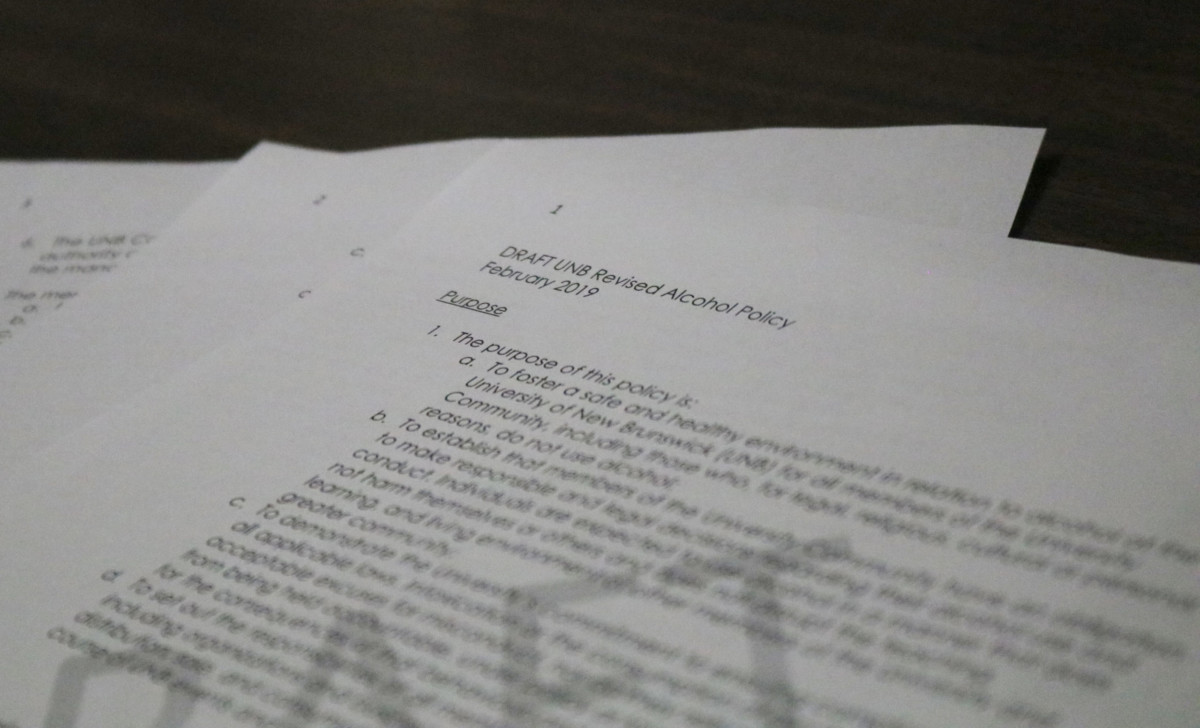St. Thomas University Students’ Union President Husoni Raymond said he feels STU hasn’t been properly represented during the revision of the University of New Brunswick’s alcohol policy.
Raymond met with Mark Walma, the chair of the Committee to Manage Alcohol on Campus, over the summer to discuss the possibility of including STU students on the committee. Raymond said he has been pushing for STU involvement since the summer.
“From the initial meeting, I could sense that it was not something the committee was interested in, but I still pushed for it,” said Raymond.
The committee includes UNB student representatives, a counselling representative, a representative of on-campus pubs and others.
The committee was formed to review and make changes to the current policy. A draft was released for review in February 2019 but it has since been updated.
The proposed changes include banning the sale of highly caffeinated beverages such as energy drinks being sold in the same facilities that sell alcohol and setting minimum prices for alcohol to discourage binge-drinking.
Walma said because it’s a UNB policy he doesn’t see the need to have STU representatives on the committee.
“Really it comes down to institutions, and UNB is a separate institution,” said Walma.
But Raymond argues the UNB Student Union Building, where both campus bars are located, is a shared space and STU students utilize the environment.
On Feb. 3, Walma attended the STUSU’s Student Representative Council meeting to discuss the policy.
Council members voiced concerns about imposing a minimum price on alcohol. They said it will make it not as accessible to low-income students, and cause students to drink off-campus.
Walma said that’s not going to happen, but the policy may get rid of specials like happy hour, where drinks are dropped to a much lower price.
“The argument is that it’s promoting drinking beyond what the individual might usually indulge in,” said Walma.
Megan Cormier, third-year student and off-campus representative said students need to considered as adults in the process.
“I think it’s not productive for them to be parenting or restricting because we need to come to those life learning instances on our own,” said Cormier.
She said she’s also concerned about not being shown the research behind these decisions. She was told there was research on minimum pricing that proved it curbed binge drinking but when she asked to see it she was told to look it up and was not presented with sources.
“I think that research should be available. It’s kind of like if you make the students blind, they can’t fight it,” said Cormier.
Raymond shares this concern. He said he’s been told he can use Google to find the research but thinks the research the decision is based on should be presented.
“Even in our previous council meeting, councillors were asking ‘What research?’ And the response was, ‘Just research you can find on your own,’” said Raymond.
“I appreciate the receptiveness to at least listen to our concerns. However, I don’t think it’s necessarily the most meaningful engagement.”
Walma said for now the committee’s work is done and the policy has been sent to be reviewed by senior administration at UNB. If approved it could be implemented by August.

